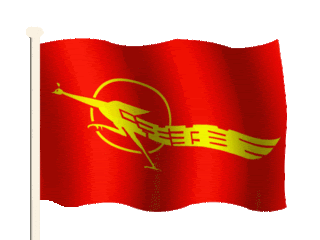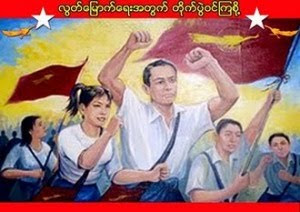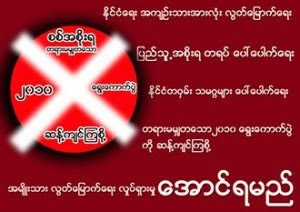On 15th September 2006, Burma issue was on UN Security Council agenda for formal discussions. As humanitarian intervention is one of the actions that the UNSC could employ, I would like to analyze some aspects of humanitarian intervention.
Humanitarian intervention can be defined as _
‘Coercive action by states involving the use of armed force in another state without the consent of its government, with or without authorization from UNSC, for the purpose of preventing or putting to a halt gross and massive violations of human rights or international humanitarian law’ (DUPI, 1999:11)
According to UN Charter Article 2(4), the use of force against the territorial integrity or political independence of any state was prohibited. However two exceptions are granted for individual or collective self-defense and the mandate by the UNSC in the case of a threat or a breach of international peace or an act of aggression.
There are a lot of political theories related to legitimizing humanitarian intervention. Legitimizing humanitarian intervention is challenged by Realism and Pluralism. For Realists, states only pursue national interests so that states do not intervene for primary humanitarian reasons. For Pluralists, humanitarian intervention should not be permitted for disagreement on what moral principles should govern. In contrast, Solidarism mentioned that states have a legal right and moral duty to intervene in the case of crimes against the humanity. (Wheeler & Bellamy, 2005:558)
Under Chapter VII of the UN Charter, the Security Council could decide upon the measures necessary to maintain peace and security. Measures include non-military enforcement measures (economic sanctions, arms embargo and severance of diplomatic relations) as well as the military enforcement measures.
According to the Article 39, the Security Council should seek whether there is a ‘threat to the peace’ or not. In several cases, civil war and gross and massive violations of human rights are regarded as a ‘threat to peace’, namely
South Rhodesia (1966)
South Africa (1977)
Iraq (1991)
former Yugoslavia (1991-1993)
Somalia (1992)
Haiti (1993-1994)
Rwanda (1994)
East Timor (1999) and so on.
Furthermore, in the report of ‘Humanitarian Intervention, legal and political aspects’ produced by Danish Institute of International Affairs, the scholars identified the determinants of a ‘threat to the peace’ as _
International repercussions of internal conflicts (cross-frontier repercussion like substantial refugee flows across borders or risk of destabilization in the region)
Civil war and large-scale human suffering (magnitude of human tragedy)
Gross and massive violations of human rights and international humanitarian law and
Violations of democracy (in the case of Haiti)
(DUPI, 1999:69)
Moreover, in the report of ‘The Responsibility to protect’ produced by the International Commission on Intervention and State Sovereignty (ICISS), it argued that the Security Council should deal promptly with any request for authority to intervene where there are allegations of large scale loss of human life or ethnic cleansing. It also urged that the permanent five members of the Security Council should agree not to apply their veto power for human protection purposes. (ICISS, 2001)
In conclusion, I would like to appeal the permanent members of the UN Security Council not to apply the veto power to obstruct the passage of resolutions for the interests of the 52 million people.
Khin Ma Ma Myo (24/9/2006)
References
Wheeler, N. & Bellamy, A. (2005) Humanitarian Intervention in World Politics, in Baylis, J. & Smith, S. (eds) The Globalization of World Politics, 3rd edition, Oxford
DUPI (1999) Humanitarian Intervention: legal and political aspects, Copenhagen
ICISS (2001) The Responsibility to Protect


































